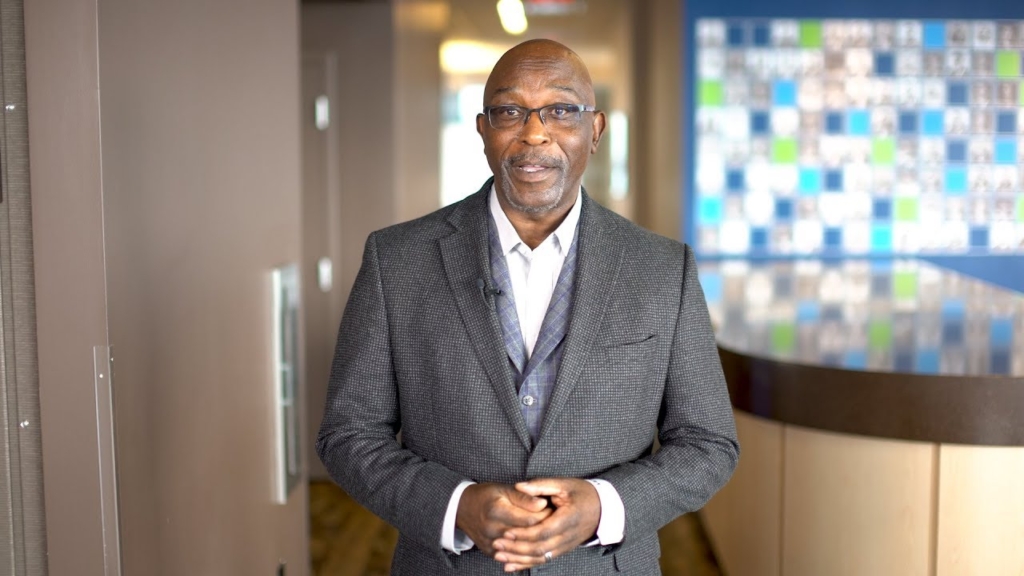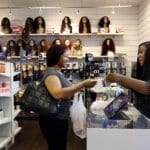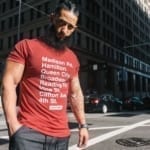As the leader of a company with $1.2 billion in revenue, you’d think Billy Vickers might be pretty well-known in Central Ohio. You’d be wrong. Despite the soaring success of Vickers’ Modular Assembly Innovations, its president and CEO is somewhat of an enigma both locally and nationally.

Billy Vickers, 62, of Delaware, admits he doesn’t seek the limelight and wouldn’t have agreed to be interviewed for this profile without a nudge from his mentor, Detroit businessman Joseph Anderson Jr., as well as his company’s sole customer, Honda. “He needs less humility,” chuckles Anderson, who’s known Vickers for 15 years and helped propel his success. “Did he tell you his company is in the top five of the Black Enterprise List of 100?”
No, he did not mention that Modular Assembly is ranked fifth in the list of the nation’s largest black-owned businesses for 2019. “He’s a stellar, outstanding business owner,” says Anderson. “He’s not content with doing OK or doing well; he has that thirst and hunger for continuous improvement, which is what good leaders are all about.”
Early days
The seed for that work ethic, says Vickers, was planted on his grandfather’s North Carolina cotton farm in Forest City near Charlotte and Asheville. It was the early 1960s, and everyone in the family pitched in with the hard work that began early each morning and ended late each night.
There were small pleasures, like riding a mule-drawn wagon into town for a Nehi soda and cookies and trying his first bite of pizza at age 10 in the segregated elementary school he attended. Church was a constant, with a deep faith in God instilled in him at an early age and more than a dozen family members immersed in the church as evangelists.
He doesn’t remember stories of racism, but does remember fifth grade when he attended his first integrated school. “The world opened up to me, and there were people who looked different than me,” he says.
An “old ornery football coach” persuaded him to play football as a high school freshman, and he learned he could work well with a team, develop his athletic skills and play well enough to be courted by North Carolina State University –“my ticket out of rural North Carolina,” as he puts it, and the first in his family to attend college.
Vickers majored in animal science in college, but his real dream was to play in the National Football League. Two months before graduating, he tore his MCL, but still was drafted by the Washington Redskins in 1980. He never played and was released because of his knee. He was able to sign with another team, but reinjured his knee, ending his football career. “Then I had to get a real job,” he says.
Up the business ladder
Vickers entered the business world as a management trainee at Corning Electronics in Raleigh, North Carolina, moved back to Forest City to work at a brass foundry, then was recruited to work at a steel mill in Ironton, Ohio, where he rose to plant superintendent. Eight years later he landed in Detroit running the largest minority-owned foundry at the time, making parts for Chrysler.
“It’s one of the best things I’ve ever done,” he says. “It introduced me to more of the automotive industry and I got the opportunity to run the plant and be the top guy.” Eventually, global competition became too stiff and, in 2003, Vickers helped shut the plant down.
By then he’d also established his own business, Quality Engineering, which focused on work for automotive suppliers. Then, in 2004, Anderson came calling. An Army veteran who served two tours of duty in Vietnam, Anderson gained fame in the 1960s as the commander of the infantry platoon featured in the acclaimed documentary, The Anderson Platoon.
After a 13-year military career, he moved into the private sector for a 13-year career with General Motors, eventually heading a business unit with 7,000 employees and $1 billion in revenue. By the mid-1990s he had acquired a controlling interest in Chivas Products Limited, and a few years later started TAG Holdings LLC.
As chairman and CEO, Anderson was always looking for talented men and women to manage the companies TAG Holdings was acquiring. When he agreed to launch a modular assembly and supply chain management company as a joint venture with Honda, he searched for someone with the right background and found Vickers.
“He was a person who had a business operations background, who had been responsible for employees and who I knew was competitive,” Anderson says. “And there was a level of maturity I saw that said he had the motivation and drive to succeed.”
In January 2005, Vickers became president and CEO of the new venture, Great Lakes Assemblies LLC, with TAG as the majority owner and Midwest Express Inc., a wholly owned subsidiary of Honda, as a partner. The company produces automobile center console modules, tire and wheel assemblies, powertrain accessory modules, chassis components and engine components for Honda.
Two years later, TAG Holdings and Honda created Gulf Shore Assemblies LLC, in Lincoln, Alabama, and a year later Indiana Assemblies in Greensburg, Indiana. Both produce tire and wheel assemblies as well as other products for Honda plants in those locations. “When I started out it was a $200 million to $300 million business in Ohio, and that grew to a $700 million operation by 2010,” Anderson says.
How did your childhood shape you as a businessman?
I grew up in North Carolina near the foothills on a farm. My grandfather had the farm and we all had to help. We grew cotton, and you didn’t make a lot of money with cotton back then. But we were fortunate that he had land. The entire family kind of pitched in.
I think my work ethic actually comes from that. When you’re on a farm, you get up early in the morning and you work all day, into the night. You’ve got to take care of the animals; you’ve got to take care of the crops. And then, you know, living in the South, it’s all about religion. You grow up with that faith in God, and it’s instilled in you at a very early age, and I’m very thankful for that.
What does it take to run a large business in the U.S. when you are an African American male?
I think it’s just surrounding yourself with good people and surrounding yourself with people that don’t necessarily look like you or think like you. I don’t want people that think the same way that I think. I want people that think differently who will challenge me. I love having a different mix of people in the room.
I also think it’s about being a good business person, a good individual, someone that people respect, someone that they trust that if you make a commitment, you keep it. I think the key to my success is that my customer knows that. If there’s a problem, then we’re going to come up with a solution; we’ll find a way to make it happen. I think probably the biggest thing is trust. My customer trusts me because it knows I’m going to do the right thing.
How do you achieve a work/family balance?
I tell all of our associates: You’ve got to have a work/life balance, you’ve got to make sure that the time we put in here at work is efficient.
I try to make sure that the time I put in here is efficient and the time I put in as a member of the boards that I sit on aligns with what’s important to me, because you have to sacrifice an amount of time for that from your family and work. I try to make sure I have a good work and family balance, which is easy to say but harder to do.
Source: Columbus CEO
Subscribe and Follow SHOPPE BLACK on Facebook, Instagram &Twitter
Get your SHOPPE BLACK Apparel!





